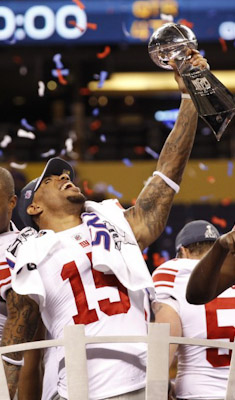Super Bowl: the perfect U.S. professional sports machine
There is one event in the United States that demonstrates the practical and symbolic power of sports better than any other: the Super Bowl, i.e., the American football championship finals that took place a few days ago, on February 5th, with the victory of the New York Giants.
The NFL (National Football League), like other major sports, is organized into franchises (teams) that are formed for two main reasons: to give the championship stability and prevent teams from sliding into a lower classification.
This view is diametrically opposite to the approach to sports of almost every major European championship, since it establishes, in perfect tune with American culture, that economic rights prevail over sports values. Translation: If you want to organize professional sports in the United States, you must, more than anything else, have the economic ability to do so; otherwise you lose that right, and you should consider amateur sports instead.
With all the physiological consequences: beyond the ironclad regulations that govern the activities of the franchises to ensure the greatest balance of forces and that require technical knowledge to discuss in any depth, I would like to highlight the purely cultural aspects inherent in this choice. Since they have to meet precise business requirements, most of the activities of the professional league and teams are strictly marketing oriented. The machine must generate revenues and being tightly aligned with the media becomes indispensable.
There is no doubt that, regardless of whether or not one agrees with this approach to sports, the “results” are impressive: this year’s championship had an average audience, in the U.S. alone, of 160 million viewers! Not bad for a game …
